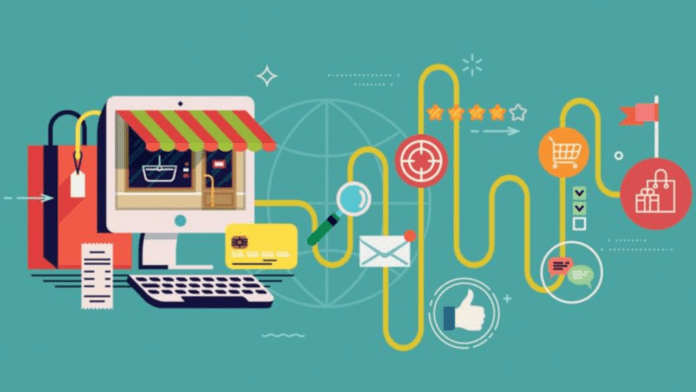Businesses are continuously looking for new methods to interact with their audiences across numerous touchpoints in the ever-changing environment of digital marketing. Enter the notion of omni-channel marketing, a strategy that focuses on providing customers with a consistent and consistent experience across all channels and devices.
The Omni-Channel Imperative

Omni-channel marketing is more than just a buzzword; it’s a necessity in today’s competitive marketplace. Here’s why:
- Customer Expectations Have Evolved: Today’s consumers expect a consistent and personalized experience, whether they’re shopping online, browsing a mobile app, or visiting a physical store. Failing to meet these expectations can lead to customer dissatisfaction and loss of business.
- Data-Driven Insights: Omni-channel strategies leverage data from various touchpoints to gain valuable insights into customer behavior and preferences. This data can be used to refine marketing efforts, tailor product offerings, and improve overall customer satisfaction.
- Increased Conversions: Providing a seamless experience across channels can lead to higher conversion rates. When customers encounter a consistent message and user experience, they are more likely to make a purchase or take the desired action.
- Competitive Advantage: Businesses that excel in omni-channel marketing gain a significant edge over competitors. By delivering a superior customer experience, they build brand loyalty and long-term customer relationships.
Creating Cohesive Omni-Channel Strategies

- Know Your Audience Thoroughly
The foundation of any effective omni-channel strategy is a deep understanding of your target audience. Conduct thorough market research to identify your customers’ preferences, behavior, and pain points. Create detailed buyer personas to guide your marketing efforts.
- Consistency is Key
Maintain a consistent brand identity and messaging across all touchpoints, whether it’s your website, social media, email marketing, or physical stores. This consistency builds trust and reinforces your brand’s values.
- Leverage Technology
Invest in the right technology and tools to facilitate omni-channel marketing. Customer Relationship Management (CRM) systems, marketing automation platforms, and data analytics tools are essential for gathering and managing customer data.
- Personalization at Scale
Use the insights from your data to deliver personalized experiences to your customers. Tailor product recommendations, email campaigns, and content to match individual preferences and behaviors.
- Seamless Customer Journeys
Ensure that customers can seamlessly transition between different touchpoints. For example, if a customer starts shopping on your website and later visits your physical store, their shopping cart and preferences should be synchronized.
- Mobile Optimization
Given the prevalence of mobile devices, optimizing for mobile is critical. Ensure that your website and digital content are mobile-friendly and responsive.
- Test and Iterate
Regularly test and iterate your omni-channel strategies. Use A/B testing and analytics to measure the effectiveness of different touchpoints and campaigns. Make data-driven decisions to refine your approach continually.
Omni-channel marketing is not just a trend; it’s a strategic imperative for businesses looking to thrive in today’s digital age. By understanding your audience, maintaining consistency, leveraging technology, and delivering personalized, seamless experiences, you can create brilliant omni-channel strategies that drive engagement, conversions, and long-term customer loyalty. In a world where consumers demand a cohesive and personalized experience, omni-channel brilliance is the key to standing out and achieving sustainable business growth. Start building your omni-channel strategy today to lead your industry and captivate your audience across all touchpoints.





